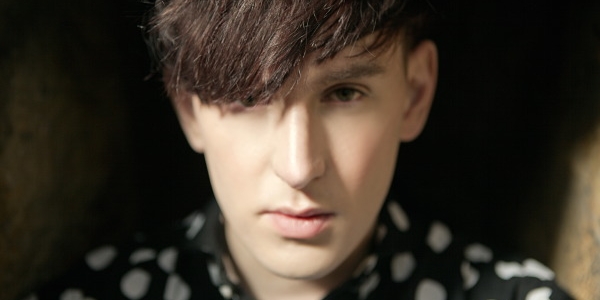Furthermore, the event boasts Mitch Peleggi (The X-Files, Sons of Anarchy), Sean Maher (Firefly, Serenity), Armin Shimerman (Buffy The Vampire Slayer, Star Trek: Deep Space Nine) Jason Momoa (Game of Thrones) and, in a recent exciting announcement, three stars from The Hunger Games movie: Leven Rambin (Glimmer), Willow Shields (Primrose Everdeen) and Dayo Okeniyi (Thresh) among others. There will also be comic book and anime artists, gaming demonstrations and cosplay competitions (a quirky performance art in which participants wear costumes to reflect cultural ideas and concepts, often from Japanese pop fiction), and in an Australian first, aspiring comic creators will be able to submit their work for professional review, with Scott Allie (Senior Managing Editor at Dark Horse Comics) in attendance at Oz Comic-Con Melbourne.
Speaking to him from his home in Oregon, Allie highlights the particular qualities that he scouts for in a new talent.
“It’s much easier with artists because you can literally see what you’re looking at immediately. With writers it’s harder, you’ve gotta invest more time to figure out if the work is really worth anything. One of the nice things about being in Dark Horse is there’s not really a house style and there’s certainly not a one subject matter that we publish, like if I was at one of the superhero companies, so really, I’m looking for something that catches my eye, that feels fresh and unique, and really well developed. Over the years, there’s often artists that I’ll see at a show or online or through their direct submissions to me where there’s something really remarkable about the work, and maybe they’re not quite ready yet, but you can see that gem of brilliance in their stuff. So you’re always looking for that, to connect with that, and nurture it”.
While there is more of an equilibrium in the editorial side of comic publishing, I ask Allie if he’s noticed a lack of female artists and writers working in the comic book industry.
“Oh yeah. Hugely. There’s a heavy tilt towards males in professional comic book artists and writers. And I think it’s kind of natural, and I think it’s naturally coming into balance now. I think it’s natural that there’s an imbalance towards more male creators in the comic industry because the vast majority of the comics publishing has been geared towards men for such a long time. My son is seven-years-old and he really likes comics and he’s very excited about The Avengers movie and so I picked up a hardcover collection of the original Avengers comics by [Jack] Kirby and [Stan] Lee. And we’ve been reading it to him, and it’s hilarious. The Avengers was very progressive; all the Marvel comics from the early days, there were always heroes in the books and so you get the Wasp in those early issues of The Avengers except all she’s there for is to talk about clothes, and about how handsome Thor is and she’s mostly irritating her husband because she’s always just talking about clothes and boys. It’s no wonder that books written like that didn’t generate a bigger female audience. It did generate somewhat of a female audience; there’s always been female fans and I think that fact is much more recognised lately than in the old days. But yeah, in the ‘60s, ‘70s, ‘80s and the ‘90s, comics weren’t doing a whole lot to drag in female readers, and if you’re not inspiring female readers, you’re not really gonna inspire female creators…since the ‘80s with the Hernandez brothers and lately with Alan Moore and Neil Gaiman, we’ve been seeing more material that appeals to a female audience…and it doesn’t have to be about heroines and any of the things people traditionally may have thought they needed to do to bring in a female audience; I think the way you connect with a large female audience is to not talk down to them by having Wasp only talk about her clothes. I think a lot of different things over the years has brought in a female audience and because of that we’re seeing a greater number of female creators”.
One particular quality that Allie emphasises as crucial in comic book artists is originality, and while imitation has its place, ultimately he’s looking for a talent that is daring enough to be unique.
“I’m certainly not looking for someone who can do a really good imitation of Mike Mignola, for instance. I’ve worked with Mike for many, many years and over the years, on his different books, we’ve worked with a lot of artists who look kind of like his stuff – like Gabriel Bá – and then we’ve work with a lot of guys who look nothing like Mignola, but in all cases, there’s something about their work that really strikes us as high quality and really promising”.
BY NICK TARAS
